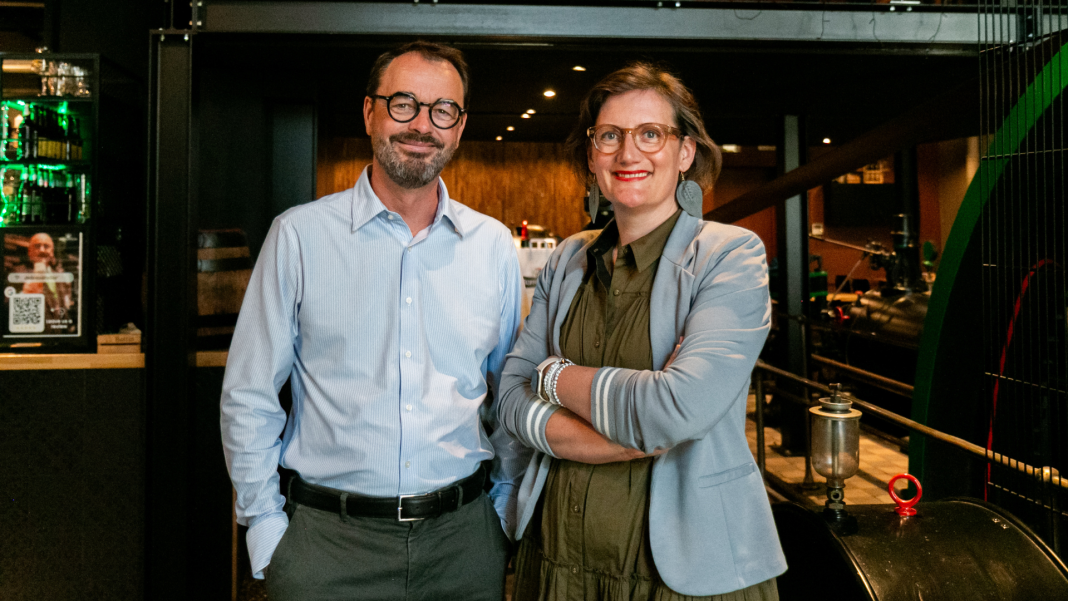Brasserie Nationale, Luxembourg’s largest brewery, combines a rich brewing heritage with a pioneering commitment to sustainability, driving innovation to reduce its environmental footprint for over 25 years.
Easily recognisable by its striking green building along Bascharage’s main road, Brasserie Nationale has been a pillar of the brewing industry for over 250 years. The brewery has cemented its status as a key player with iconic brands such as Bofferding, Battin, and Funck-Bricher, alongside the more recent addition of Lodyss mineral water. Now led by the family’s tenth generation, this family-owned business also stands out for its strong commitment to responsible environmental management.
From its earliest days, the brewery has embraced sustainable innovation—investing in energy-efficient brewing technologies and pioneering revolutionary water recycling systems. Today, that dedication is embodied in an ambitious €3.7 million modernization of its filtration system, perfectly reflecting Brasserie Nationale’s enduring philosophy: brewing beer with a conscience. Maurice Treinen, Brewery Director, and CEO Isabelle Lentz share more insights.
Your environmental commitment goes back more than 25 years, well before it became a mainstream public concern. What motivated it?
Maurice Treinen: That’s right—it’s not new to us. It’s part of a brewer’s job to constantly look for ways to use less water and less energy. This approach has been around for a long time; it’s almost historical.
Isabelle Lentz: Yes, and we follow a philosophy of continuous improvement. Since 2000, we’ve launched over a dozen major production-related projects, with the main goal of reducing our energy and water consumption.
“It’s part of a brewer’s job to constantly look for ways to use less water and less energy”
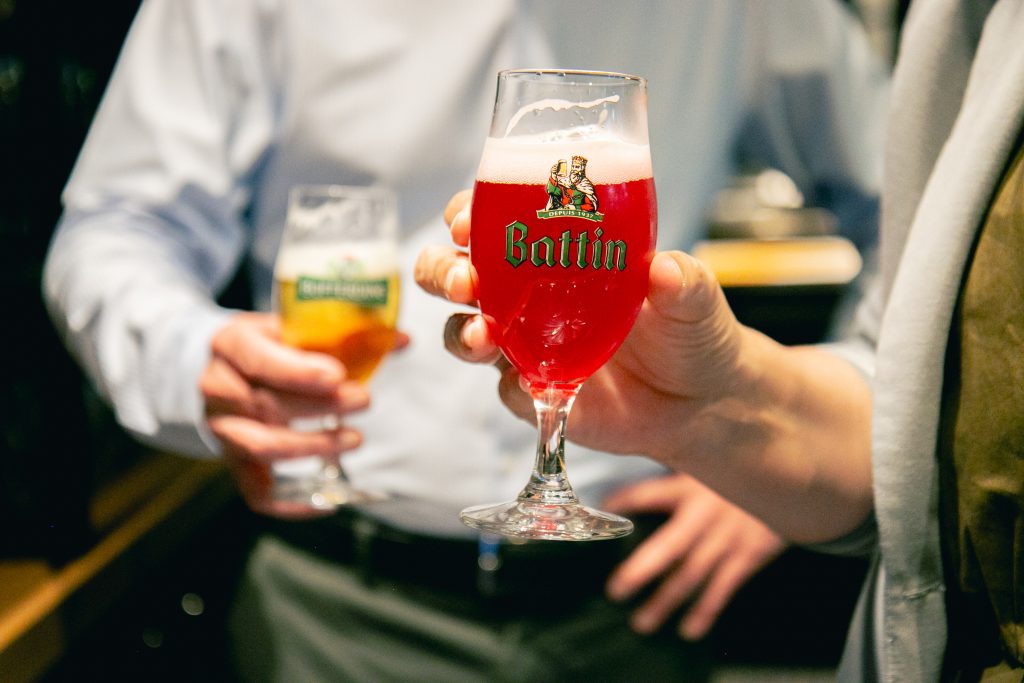
How has this intention translated into practical measures over the years?
Maurice Treinen: Our first major environmental investment focused on our wort boiling system in the brewhouse—right at the start of the process. We invested in what was, at the time, a completely innovative system, and we were the first to implement it on an industrial scale. The result: we cut our thermal energy needs—specifically gas—for wort boiling by 55%. That represented nearly 25% of the brewery’s total gas consumption. More importantly, we halved the boiling time, from 70 to 35 minutes.
At the time, even experts were skeptical: “It won’t work, the beer will suffer.” But we proved the opposite: quality improved, the foam was better, and so on. That was a crucial step. Since then, we’ve kept going in the same direction.
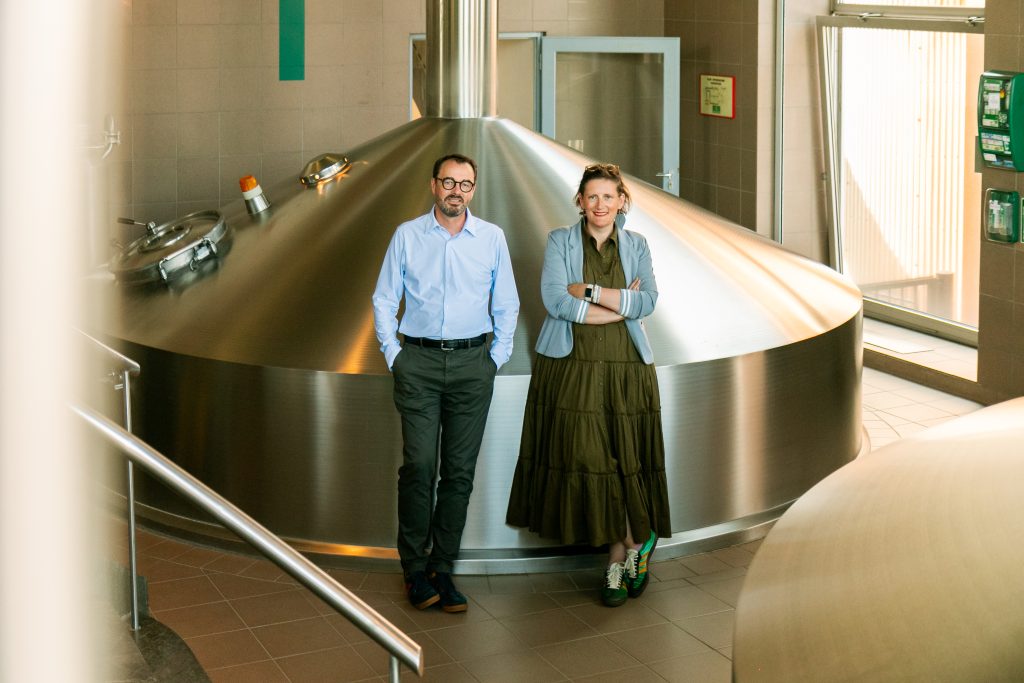
What other major projects followed?
Maurice Treinen: We followed up with several targeted initiatives. For example, we automated the cleaning of fermentation tanks, cutting our water use by 60% and detergent use by 50%, thanks to product recovery and reduced rinsing.
We also optimised our water room by fully insulating tanks and producing hot water through heat recovery. In 2012, we introduced 16 new fermentation, storage, and aging tanks, saving 1,000 m³ of water per year, recovering 5.5 tonnes of CO₂, and increasing our storage capacity by 65%. Then in 2019, with an automated yeast cellar, we again saved 1,000 m³ of water annually and recovered 5.5 tonnes of CO₂, while implementing an eco-friendly cleaning product recovery system.
In 2022, you commissioned a wastewater treatment and recycling station—a first in Luxembourg. What prompted this project?
Maurice Treinen: It was the logical next step, but still a truly exceptional project. We are the only company in Luxembourg with a treatment and recycling plant for wastewater of this kind.
Isabelle Lentz: Water recycling is hugely important to us. And since we use our own water source for production, it’s even more critical. The water is of exceptional quality—a real heritage asset. We must preserve it and use it responsibly. We’re incredibly lucky to have this resource for brewing.
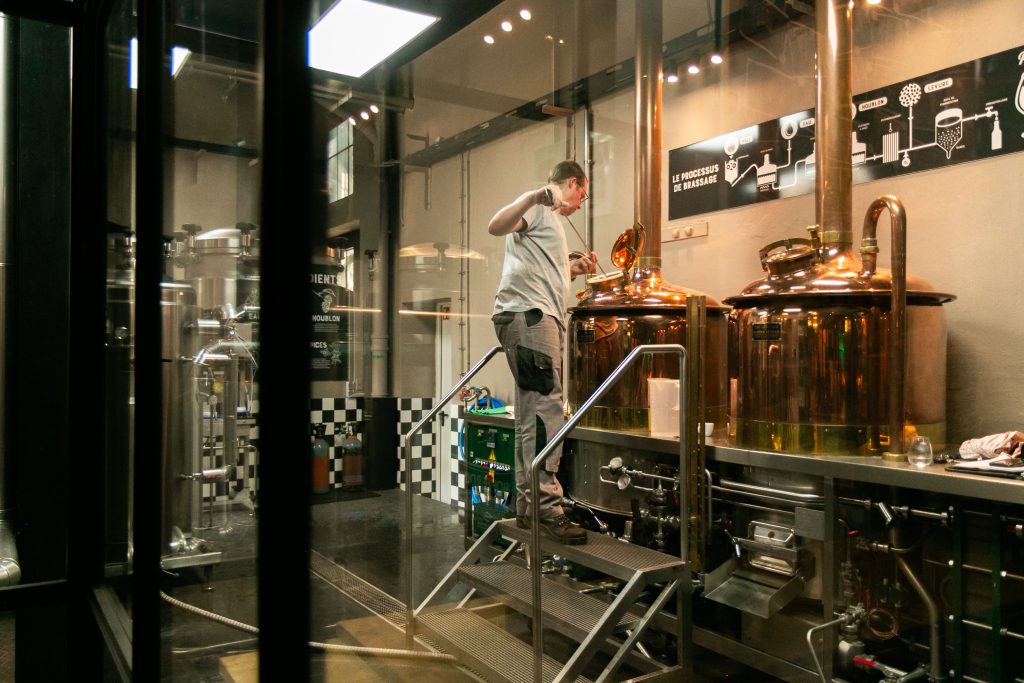
What impact has this installation had?
Maurice Treinen: Since commissioning, we’ve reduced our water consumption by 50%, going from 5.5 litres of water per litre of beer to under 2.5 litres. That’s an excellent score: a large modern brewery averages around 3.5 litres, and small craft breweries often use between 7 and 10 litres. This system enables us to reuse 70% of treated wastewater and cut pollutant loads by 95%. The treated water is used in a separate circuit, dedicated to cleaning, steam production, and cooling.
Isabelle Lentz: The only downside is that treatment requires energy. So, we also installed solar panels to power the station. Thanks to them, we generate nearly all the electricity needed.
You’ve launched a project to modernize your filtration system. What does that involve?
Maurice Treinen: In early April 2025, we began replacing our filtration system, which dated back to the 1950s and was reaching the end of its life. The project is scheduled for completion in February next year. We’ve invested in a next-generation, eco-friendly, fully automated filtration cellar, with remote control capabilities.
It’s a complex project because we’re in the middle of a city: we need to open the roofs, break a concrete slab, pour a new one, etc.
What benefits do you expect from this new installation?
Maurice Treinen: The filtration cellar removes yeast and protein particles from fermentation. It produces clear beer that’s stable over time and meets microbiological standards. But most importantly, it will reduce our water consumption during filtration by 60 to 70%. We’ll also be able to increase production capacity if needed—from 1,500 to 2,500 hectolitres per batch. It will save time too, without affecting the beer’s taste—the quality will remain the same.
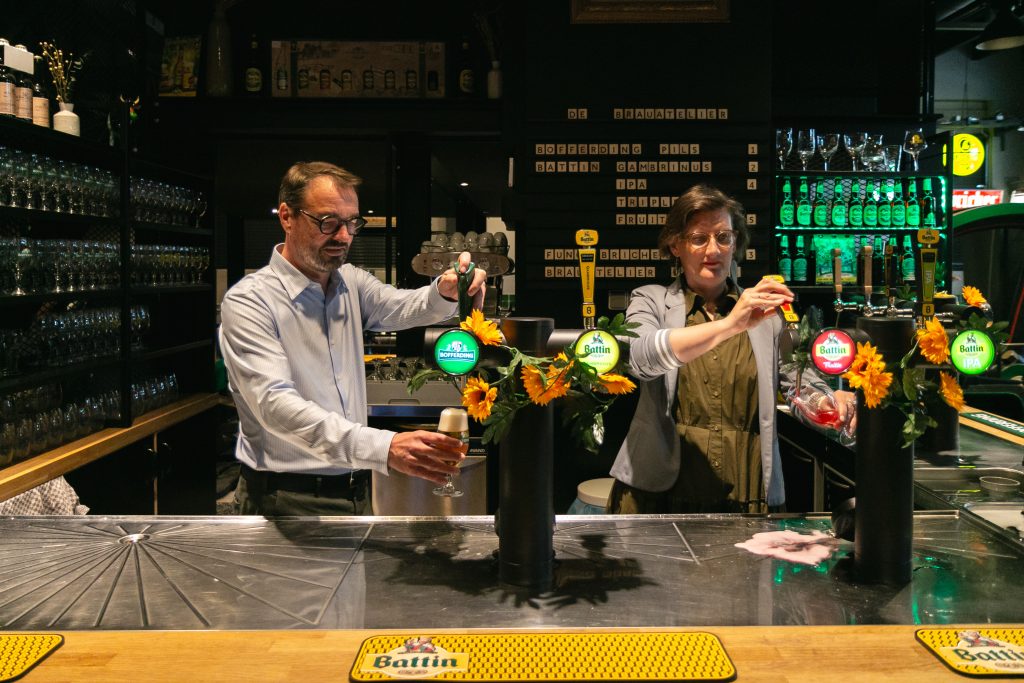
Isabelle Lentz: It will also reduce our use of consumables. Currently, we use sheet filters that we replace every six weeks. The new system uses candle filters, which only need replacing once or twice a year, greatly lowering our environmental impact. In addition, the materials used have a much smaller carbon footprint. Overall, the carbon footprint of this stage will be halved.
It’s a significant investment—€3.7 million. What motivated you to go ahead with it?
Isabelle Lentz: It’s a major project for a brewery like ours, but it’s primarily a matter of responsibility. As a company, we believe we must take concrete environmental actions. No one forced us to install a water recycling plant, but we’re convinced it’s necessary—for future generations, for our children. It’s also about raising awareness—among both employees and consumers.
Maurice Treinen: Inside the plant, everyone is on board—especially the brewers. It’s second nature now to think about reducing water and energy use. It’s a general trend in the brewing sector, yes, but it’s expensive. And if you look at the numbers, we’re making huge efforts and achieving better results than some well-known large breweries. We pay close attention to every step.
“There’s a German saying we like a lot: ‘Brauen ist Bauen’—brewing is building”
After this project, are there more initiatives on the horizon?
Isabelle Lentz: There always will be.
Maurice Treinen: There’s a German saying we like a lot: “Brauen ist Bauen”—brewing is building. And it’s true—you never stop.
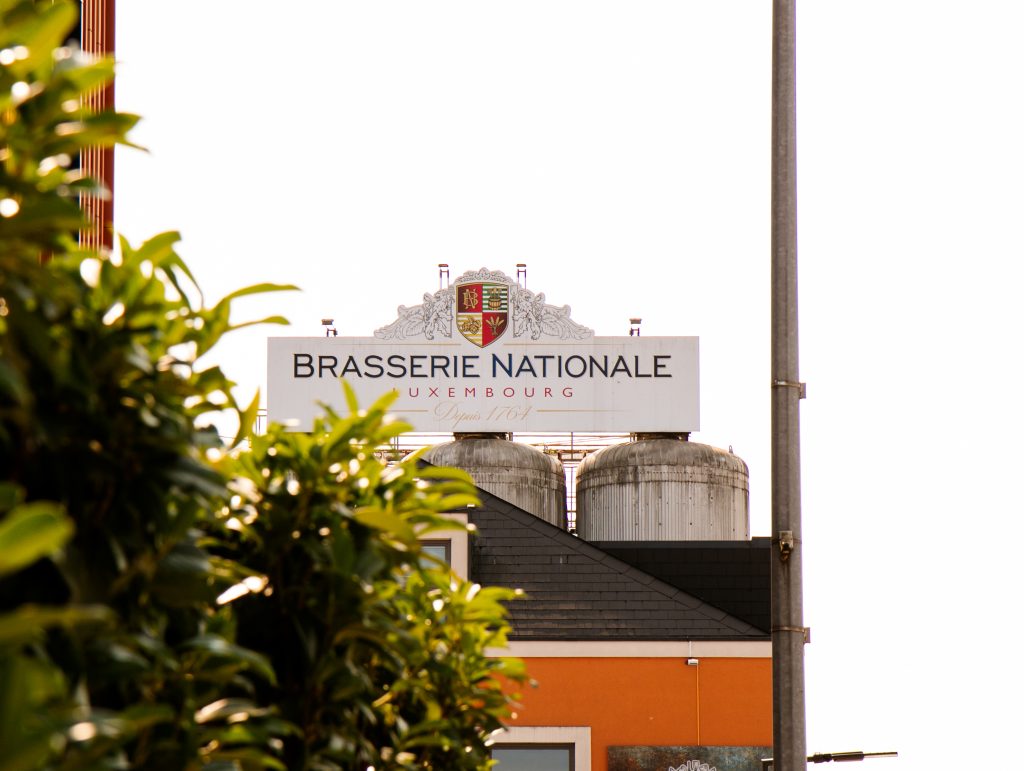
A Website Showcasing CSR Efforts
“HAPPY HOURS” is the name of Brasserie Nationale Group’s CSR programme. It’s available on the website happy-hours.lu, a platform that playfully presents the company’s progress over time in terms of social and environmental responsibility—underscoring the group’s commitment to promoting sustainable and responsible practices.
This article was published in the 7th edition of Forbes Luxembourg.
Read more articles:
ekxo: Why Timber Is Shaping Luxembourg’s Office Market
Matthieu Bracchetti: Training Better Through Simulation
Bio LËTZEBUERG: The Other Face Of Luxembourg’s Organic Sector

